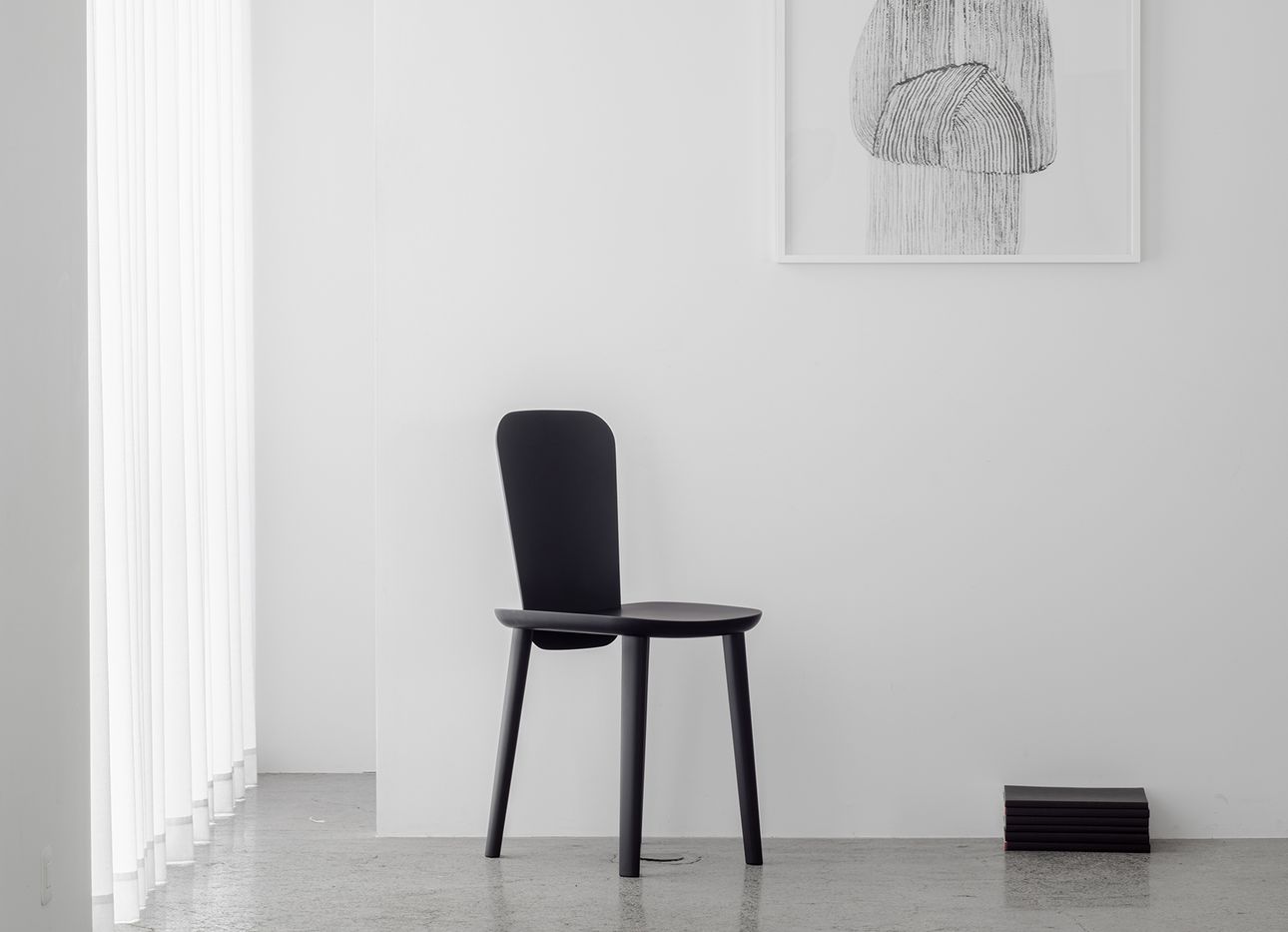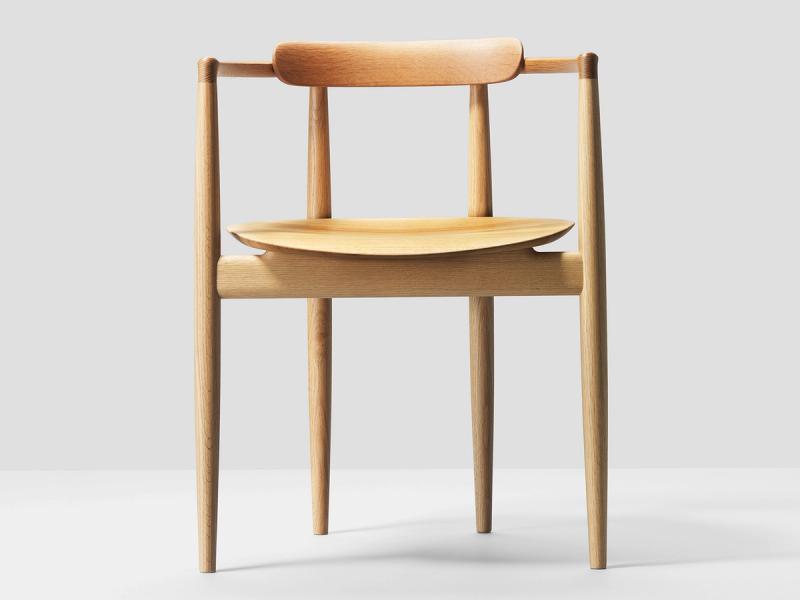
With Jasper Morrison at Its Creative Helm, Japanese Furniture Company Koyori Makes Splendid Seats
With practically everything they do—or at least with their many time-honored ceremonies and traditions, from yuritsuki gardening to the brewing of gyokuro—the Japanese bring great care. Gift-wrapping is no exception. Taking cues from the island nation’s rich, detail-driven heritage, and celebrating the latter art, the new Japanese furniture maker Koyori chose its name. Meaning “twisted paper cords,” Koyori references the primary material of mizuhiki, the decorative paper cords commonly used in Japan to tie paper-wrapped gifts. The metaphor is apt: Koyori’s exquisite wood furniture creations tie together Japanese aesthetics and craftsmanship with leading-edge designers from around the world. Rooted in Japanese tradition, Koyori is a global company of the now, beyond borders.
At the creative helm of this new venture—which launched this month at the Triennale di Milano art and design museum, during Milan Design Week—is the British product and furniture designer Jasper Morrison, who serves as its “brand directing advisor.” Tapped by executive director Koda Munetoshi, Morrison collaborated on Koyori’s identity with the Tokyo-based Swiss graphic designer Sebastian Fehr. The debut collection’s five chairs—three of them (the Kawara, the Musubi, and the Skaku) by the Paris-based brothers Ronan and Erwan Bouroullec, the other two (the Miau and the Edaha) by the Danish-Italian duo Stine Gam and Enrico Fratesi, who run the Copenhagen-based firm GamFratesi—emphasize rigor and comfort, evoke a poetic intimacy, and highlight tradition without getting bogged down in it. Each chair conveys its own sort of personality: The Bouroullecs’s simple, high-backed Shaku winks, casually and not in any overt way, at Shaker furniture; GamFratesi’s Miau practically smiles in form, its elegant bent armrest made from a single piece of wood. It is serious design, but joyful, too.

While there are other furniture makers that, similarly, produce beautifully detailed wood furniture—for example, Maruni (where Munetoshi previously worked, in sales and branding, from 2009–2018) and Ariake of Japan, Mattiazzi of Italy, or Carl Hansen & Søn of Denmark—there’s something highly refined and distinctive about Koyori, if one looks closely enough. In a crowded market, Koyori manages to stand out not only for its meticulous simplicity and fewer-better-things approach, but also for its subtle swoops, quiet curves, and fluid, just-so lines.
A brand built around rigor and pragmatism, Koyori clearly places comfort at the core, but there’s also a playfulness and inviting nature inherent to each of its pieces—one that suggests this is a company that, thankfully, doesn’t take itself too seriously. Its chairs are to be enjoyed, and to provide joy. This approach is no doubt testament to Morrison, whose many books exemplify his adroit skill at identifying the extraordinary within the ordinary. Wrapping his talents—and those of the Bourellecs and GamFratesi—in one, Morrison has binded a brand that, despite the intricacy of all that underpins it, comes across as clean, beautiful, and inevitable.